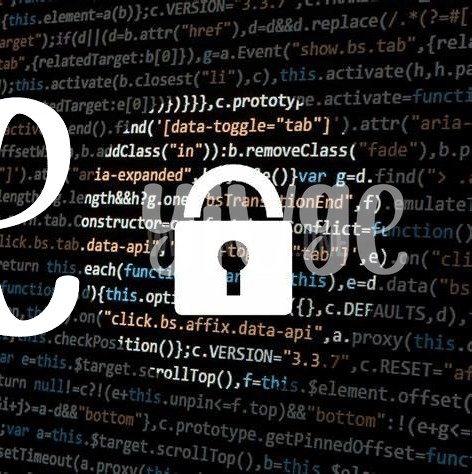What Is Bitcoin Anyway? 🤔

Imagine finding a digital treasure chest, hidden within the vast expanse of the internet. That’s Bitcoin for you, a kind of money that exists purely online. It was created by a person (or group of people) using the name Satoshi Nakamoto, and it’s like having cash, but in a digital form. You can send or receive Bitcoins over the internet, and it doesn’t need a bank or middleman. Every Bitcoin is a file stored in a digital wallet app on a smartphone or computer. People can send Bitcoins (or part of one) to your digital wallet, and you can send Bitcoins to others.
| Key Components | Description |
|---|---|
| Digital Wallet | Where you store your Bitcoin, accessible via smartphone or computer. |
| Bitcoin | A form of digital currency that allows peer-to-peer transactions across the internet. |
| Satoshi Nakamoto | The pseudonymous creator(s) of Bitcoin. |
Bitcoins are not printed like traditional money. They’re produced by people and increasingly businesses, running computers all around the world, using software that solves mathematical problems. It’s a process called mining, which is basically a competition to do complicated calculations that verify Bitcoin transactions. This digital form of money is fascinating because it’s decentralized, meaning no single institution controls the Bitcoin network. This might sound a bit like finding pirate treasure, but it’s all about freedom in the digital age.
The Illusion of Anonymity in Bitcoin 💡
When we first dive into Bitcoin, it feels like stepping into a world where our money can dance around without anyone knowing whose wallet it’s jumping from or to. It’s a bit like wearing a mask at a masquerade ball; you’re there, but no one knows it’s you. This concept seems pretty cool, right? But here’s the catch: while Bitcoin does a great job at letting us send money across the globe without sticking our names on every transaction, it doesn’t quite make us invisible. Think of it as leaving digital footprints in the snow. Every transaction is recorded in a public ledger, viewable by anyone who knows how to follow the tracks. So, while it’s not as simple as looking up someone’s transaction history with just their name, with the right tools and a bit of digging, those footprints can lead straight to your door. Wanting more privacy? You’re not alone. There are ways to enhance the privacy of your Bitcoin transactions, and one such method is exploring multi-signature wallets, an extra layer of security. Learn more about this at https://wikicrypto.news/exploring-multi-signature-wallets-an-extra-layer-of-bitcoin-security. So, while Bitcoin offers a semblance of anonymity, it’s important to understand its limitations and consider steps to protect your privacy further.
Why Privacy Matters with Digital Money 🕵️

Imagine you’re walking down the street, every purchase you make, from a morning coffee to a new pair of shoes, is visible to anyone who cares to look. Sounds uncomfortable, right? This is where the importance of privacy in digital money, like Bitcoin, comes into play. Just like our everyday transactions, online purchases should remain our own business. However, the digital world has a way of leaving breadcrumbs, leading back to our financial doors, making privacy a critical issue for users who value the confidentiality of their transactions.
In addition to personal privacy, there’s a bigger picture. In countries where financial policies are stringent or unfair, the ability to make private transactions can be a lifeline. It allows for the flow of money without unwanted surveillance, granting individuals a level of financial freedom they might not otherwise have. Thus, the debate on privacy in the realm of digital money isn’t just about keeping secrets; it’s about securing a fundamental layer of freedom and control over our own financial decisions, paving the way for a future where our financial moves aren’t an open book.
Breaking down the Bitcoin Privacy Debate 🛠️

At the heart of the conversation around Bitcoin, there’s a big question about privacy. Some people think Bitcoin is super private, like a digital version of a secret handshake. But actually, it’s more like writing in a diary that anyone can peek into if they know where to look. This has made a lot of folks sit up and pay attention because, in our online world, keeping some things to ourselves is more important than ever. When we dive into the details, we find that every transaction you make with Bitcoin is stored on a public list. This means that while your name might not be flashing in neon lights next to your transactions, with a bit of digging, someone could connect the dots. This revelation has sparked quite the debate: how can we use this digital money and still keep our business, well, our business? Solutions are on the table, from using sneaky tricks to make the tracking harder to creating new tools that promise better privacy. For those curious about adding an extra layer of stealth to their digital wallet, bitcoin software wallets security concerns is a must-read. It’s about striking the right balance, and as we look to the future, the conversation is just getting started. 🛠️🔍💬
Solutions and Tricks for Enhancing Privacy 🚀
So, you’re looking to up your Bitcoin privacy game, right? Imagine stepping into a magical shop where instead of cloaks of invisibility, they sell digital tricks to keep your Bitcoin transactions private. First off, there’s this cool thing called a Bitcoin mixer or tumbler. Picture it as a giant blender. You toss in your Bitcoins, and they get mixed up with others’. When they pour out, tracing them back to you is like trying to find a specific grain of sand on the beach. 🏖️
But that’s not all. Ever heard of creating new addresses? Every time you receive Bitcoin, using a new address is like changing your clothes. Nobody recognizes you from the transaction before. It’s basic but powerful. And there’s more where that came from. Check out this table for a quick peek:
| Privacy Tool | Description | Why It’s Cool |
|---|---|---|
| Bitcoin Mixer/Tumbler | Mixes your coins with others’ | Makes tracing your coins tough |
| New Addresses | Use a new address for each transaction | Keeps your transactions disconnected |
| Privacy-focused Wallets | Wallets that enhance anonymity | They offer built-in privacy features 🔐 |
Embracing these steps not only shields your transactions but also strengthens the very fabric of digital privacy. It’s like becoming a ghost in the machine, where your financial footprint is yours to control. Welcome to the future of Bitcoin privacy, where staying anonymous isn’t just possible; it’s a savvy move. 🚀
The Future of Bitcoin and Privacy 😎

As we sail into the future, the conversation around Bitcoin and its ability to guard our privacy is heating up. In a world where digital footprints are becoming as significant as our real-world steps, Bitcoin’s role in protecting or exposing our financial moves is under the spotlight. Think of it as a game of hide and seek, where we’re all looking for ways to keep our financial activities snug and safe under a cloak of invisibility. But here’s where it gets interesting: governments and regulatory bodies are also keen on peeling back that cloak to ensure security and prevent unlawful activities. This tussle between privacy and regulatory oversight is sparking innovations and changes in how Bitcoin operates. The community is buzzing with projects and updates aimed at enhancing privacy without stepping on regulatory toes. For those interested, diving into the nuances of how these privacy features intersect with regulations is essential. A great start is to check out bitcoin regulation updates explained for a deeper understanding. As we peer into the crystal ball, one thing is clear: the journey of Bitcoin and privacy is far from over. It’s evolving, with every tick of the blockchain clock bringing new developments. Embrace the change, stay informed, and let’s navigate this digital odyssey together. 🚀🔍💡
